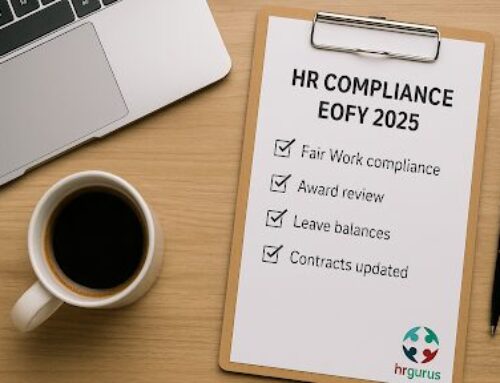Why is HR so hard right now?
If you’re a business owner, CEO, or manager in Australia, you’ve probably asked this question recently.
Between hybrid work debates, compliance nightmares, and an escalating skills shortage, HR has gone from a back-office function to one of the biggest challenges in running a business.
Employees expect more flexibility. The government keeps rolling out new workplace laws. Finding (and keeping) skilled workers feels harder than ever. And somehow, you’re expected to keep up, stay compliant, and make sure your business doesn’t fall apart in the process.
Sound familiar? You’re not alone. Let’s break down the biggest HR challenge facing Australian businesses right now—and how you can tackle it head-on.
Hybrid Work: The Never-Ending Battle
Why It’s a Problem for Business Leaders?
You want people in the office. Your employees want to work from home. Who wins?
Hybrid work isn’t new, but the power struggle around it is getting worse. Employees expect flexibility and forcing them back into the office can cause resentment, disengagement, and even resignations. On the other hand, some businesses are struggling with accountability, collaboration, and productivity in remote setups.
How to Solve the Hybrid Work Tug-of-War
- Set Clear Expectations – Decide what hybrid actually means in your business. Is it three days in-office? One? No guesswork.
- Use Data to Make Decisions – Measure productivity, engagement, and performance. If output is strong, does it matter where they work?
- Create a ‘Return to Office’ Plan That Works – Instead of mandates, focus on making the office a place people want to be (think collaboration, perks, better culture).
- Invest in the Right Tech – Collaboration tools, project management software, and remote communication platforms help keep hybrid teams aligned
Ignoring hybrid work issues won’t make them disappear. Get ahead of the problem before it starts costing you top talent.
Legislation & Compliance: The Silent Business Killer
Why It’s a Growing Risk
Australian workplace laws are shifting fast. If your business isn’t keeping up, you could be breaking the law without even realising it
Some of the biggest compliance headaches in 2024:
- Fair Work Act changes – Employees are more empowered than ever to challenge unfair treatment.
- Wage compliance and payroll risks – Underpayment scandals are everywhere. Are you 100% sure your payroll system is compliant?
- Mental health regulations – Businesses are now legally responsible for managing psychosocial risks at work.
What You Need to Do Now
- Audit Your Compliance Gaps – Get a legal or HR professional to review your policies before a regulator does.
- Update Workplace Policies – Make sure contracts, handbooks, and HR processes align with new laws.
- Train Your Managers – They’re on the frontlines of workplace compliance. If they don’t know the laws, you are liable.
- Invest in HR Software – Automate compliance tracking, payroll accuracy, and policy updates.
- Don’t wait for a legal headache. Proactive compliance now means fewer lawsuits, fines, and HR nightmares later.
Skills Shortages: Why You Can’t Find (or Keep) Good People
The Hiring Problem No One Talks About
If you feel like hiring has never been harder, you’re right. Australia is in the middle of a massive skills shortage
- Tech and AI advancements are changing job requirements faster than workers can upskill.
- Experienced professionals are retiring with no clear succession plans in place.
- Younger employees expect rapid career growth—and they’ll leave if they don’t get it.
How to Fix Your Talent Pipeline
- Rethink Hiring Criteria – Focus on skills and potential, not just rigid job descriptions.
- Invest in Upskilling – The best talent could already be in your business. Develop them instead of replacing them.
- Offer Competitive Benefits – Salary matters, but so does flexibility, career growth, and workplace culture.
- Use AI & Automation – Streamline recruitment, remove hiring bias, and speed up the process.
If you don’t adapt to this new talent landscape, your competitors will—and they’ll take your best people with them.
The Future of HR in Australian Businesses
HR isn’t just an admin function anymore—it’s a core part of business strategy. Whether you like it or not, workplace expectations are changing. Businesses that embrace flexibility, compliance, and talent development will thrive. Those that don’t? Well… let’s just say high turnover and legal headaches aren’t a great business model.
Your HR Action Plan for 2025
✅ Tackle the hybrid work challenge head-on – Set clear policies and invest in collaboration tools.
✅ Get your compliance in order – Stay ahead of workplace law changes and protect your business from risk.
✅ Fix your hiring and retention strategy – Upskill your team, use data-driven hiring, and offer benefits that attract top talent.
✅ Use HR as a business driver, not just a support function – When your people thrive, so does your business.
Final Thoughts: HR is No Longer a ‘Nice to Have’—It’s a Business Essential
Here’s the reality: HR problems are business problems.
If you want to scale, compete, and keep your best people, you need a smarter approach to workplace challenges. Whether it’s compliance, hiring, or retention—HR Gurus can help you get it right.
Struggling with HR headaches? Let’s chat.
Our team helps Australian businesses stay compliant, attract top talent, and build high-performing teams. Book a free consultation today!
Written by Jessy Warn – Managing Partner
Continue Reading
Get a personal consultation.
Call us today at 1300 959 560.
Here in HR Gurus. We make HR simple because it should be.




